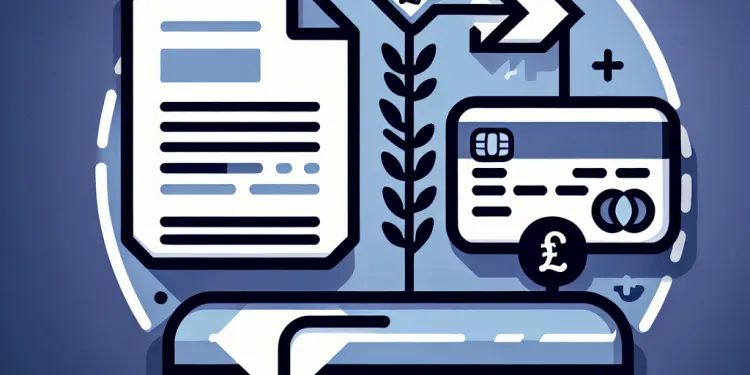
Find Help
More Items From Ergsy search
-
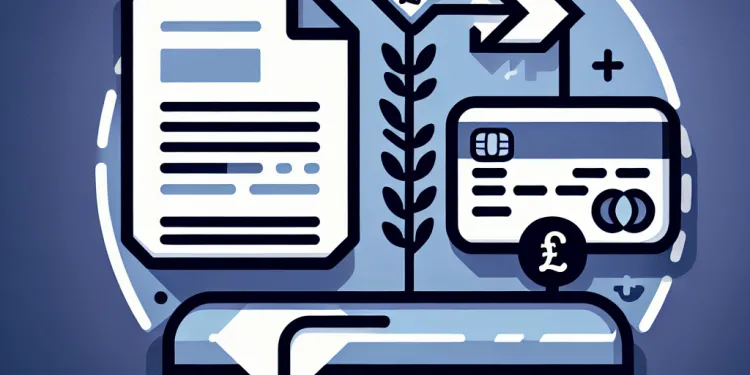
Can I transfer a balance from a loan to a credit card?
Relevance: 100%
-

What is a Balance Transfer Credit Card?
Relevance: 87%
-
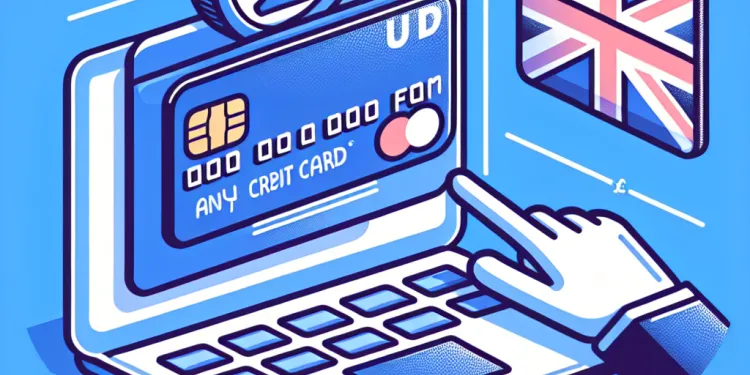
Can I transfer balances from any credit card?
Relevance: 84%
-
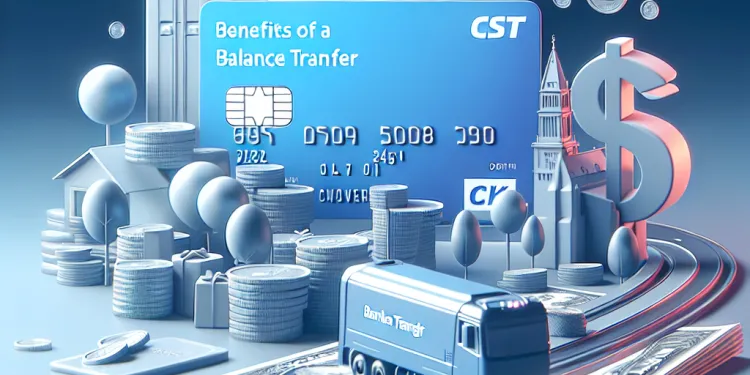
What are the benefits of a balance transfer credit card?
Relevance: 81%
-

Can I transfer a balance to a card with no promotional offer?
Relevance: 76%
-

What is a good credit score to qualify for a balance transfer card?
Relevance: 74%
-

How do I apply for a balance transfer card?
Relevance: 72%
-

What is a balance transfer credit limit?
Relevance: 72%
-

Will transferring a balance affect my credit score?
Relevance: 71%
-
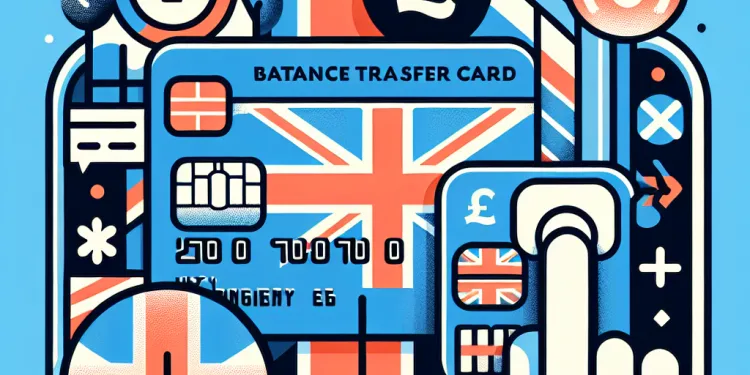
Can I use a balance transfer card for new purchases?
Relevance: 66%
-

Is a balance transfer the right choice for me?
Relevance: 64%
-

How does a balance transfer work?
Relevance: 63%
-
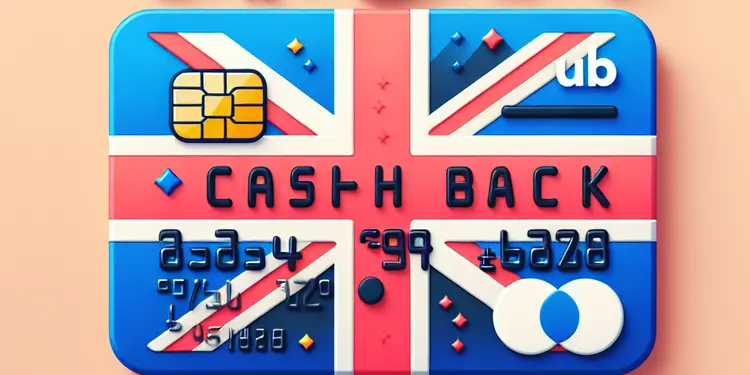
Can I transfer cashback rewards to another credit card?
Relevance: 62%
-

Are there any fees associated with balance transfers?
Relevance: 62%
-

Do balance transfer offers apply to new purchases?
Relevance: 58%
-

What is the typical duration of a promotional balance transfer offer?
Relevance: 56%
-

How long does a balance transfer take?
Relevance: 56%
-
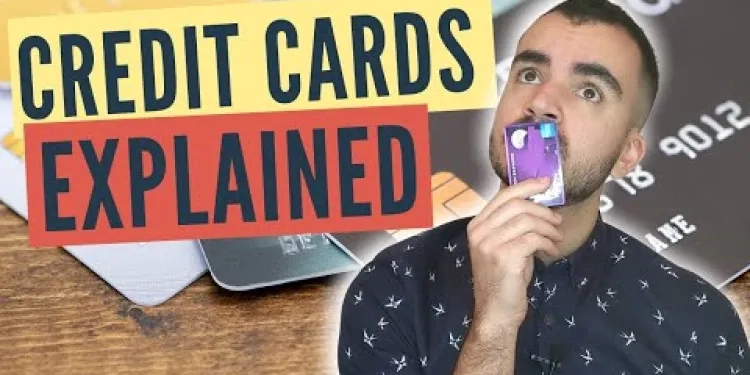
Credit Cards for Beginners Explained UK | Do's and Don't | Type of Cards
Relevance: 56%
-
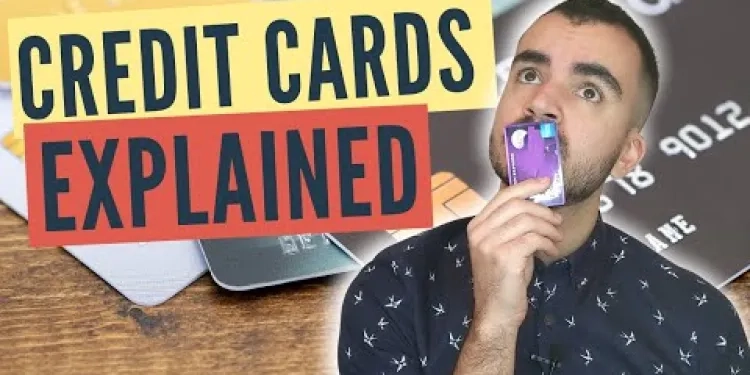
Credit Cards for Beginners Explained UK | Do's and Don't | Type of Cards
Relevance: 56%
-

Is a cashback credit card right for me?
Relevance: 51%
-
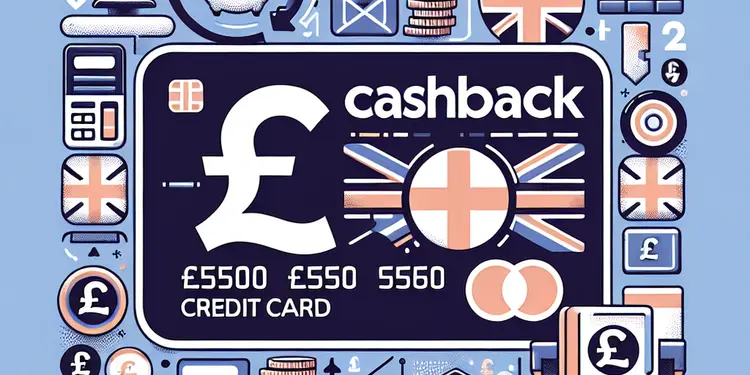
What is a cashback credit card?
Relevance: 49%
-
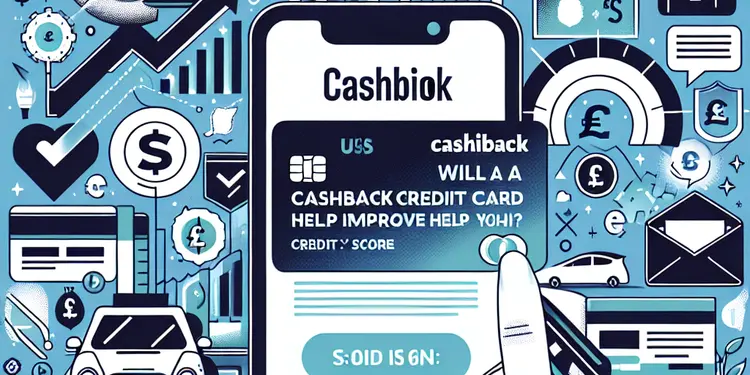
Will a cashback credit card help improve my credit score?
Relevance: 47%
-
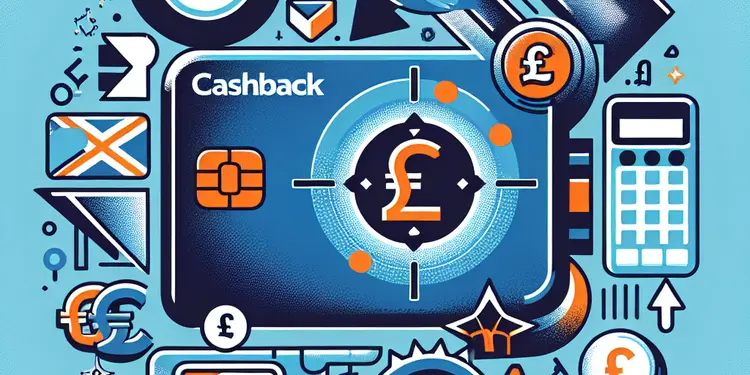
How does a cashback credit card work?
Relevance: 47%
-
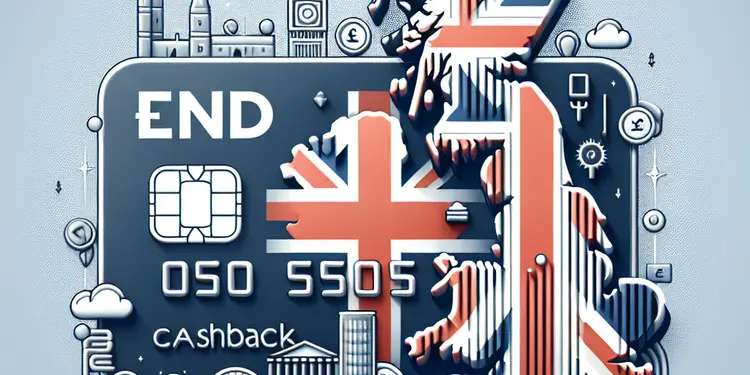
What should I look for in a cashback credit card?
Relevance: 45%
-
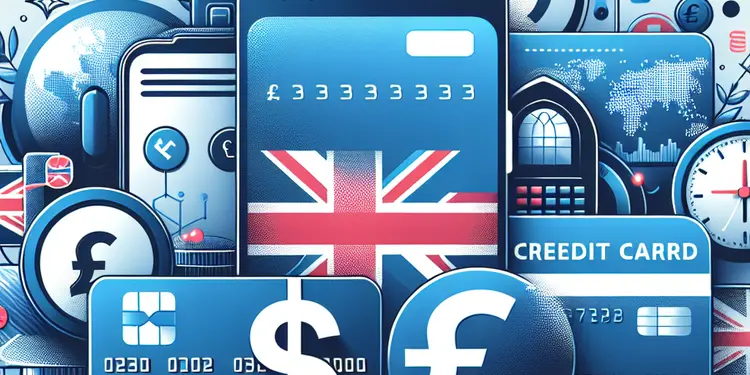
What is credit card fraud?
Relevance: 45%
-

Are there any drawbacks to using a cashback credit card?
Relevance: 45%
-
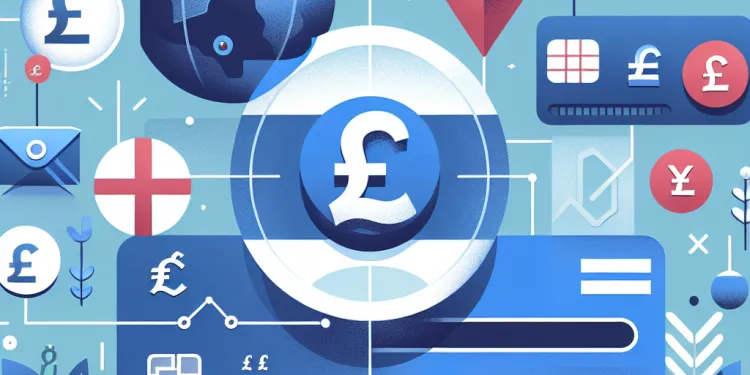
What should I consider before doing a balance transfer?
Relevance: 39%
-
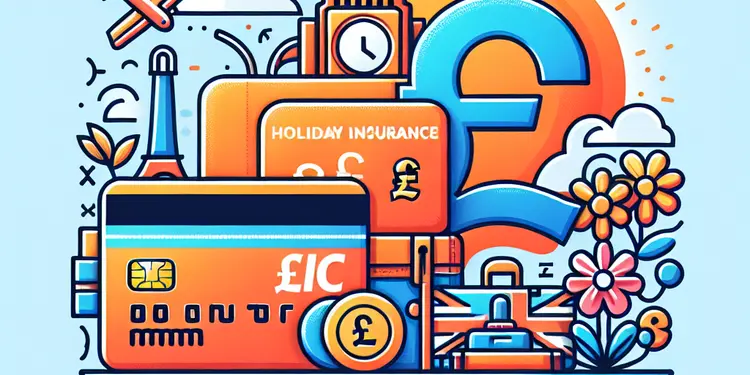
Is it necessary to have holiday insurance if I have a credit card with travel benefits?
Relevance: 37%
-
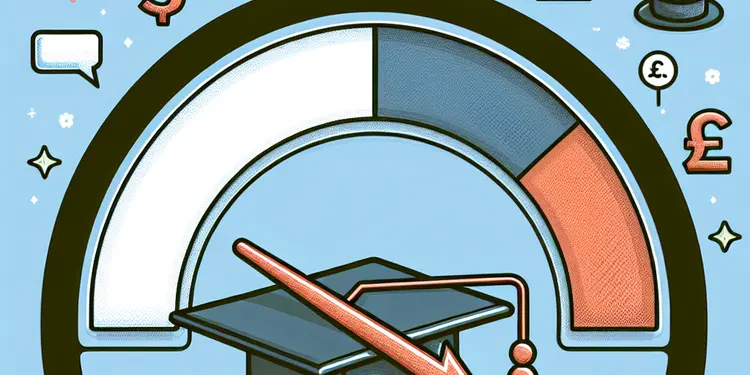
How does missing student loan payments affect my credit score?
Relevance: 37%
-

How does loan consolidation help with repayment?
Relevance: 34%
-
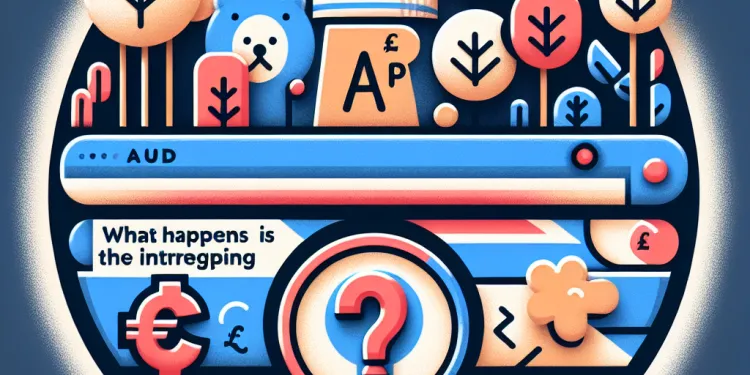
What happens when the introductory APR period ends?
Relevance: 34%
-

What is loan rehabilitation?
Relevance: 34%
-
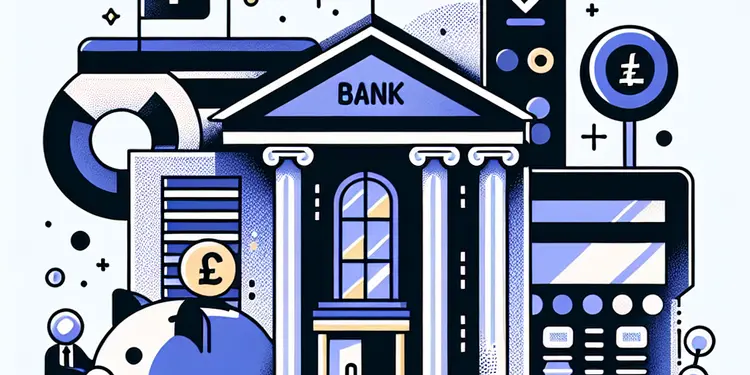
Will switching banks affect my credit score?
Relevance: 33%
-

What happens if I default on my student loan?
Relevance: 33%
-

Can I get a loan to cover funeral costs?
Relevance: 33%
-

Can I negotiate a settlement for my student loan?
Relevance: 32%
-
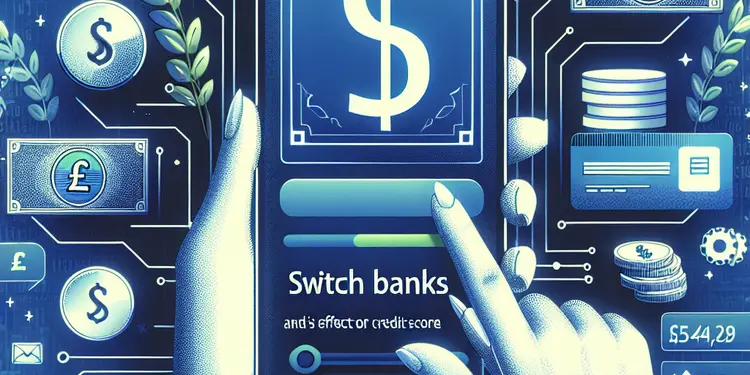
Will switching banks affect my credit score?
Relevance: 31%
-

Can switching banks offer better loan options?
Relevance: 31%
-
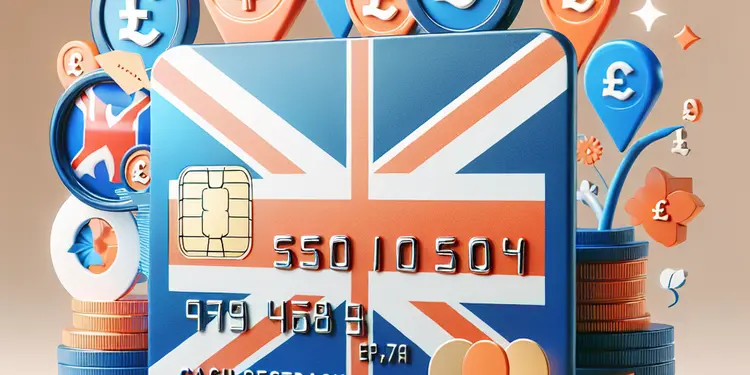
Do cashback credit cards offer sign-up bonuses?
Relevance: 31%
-
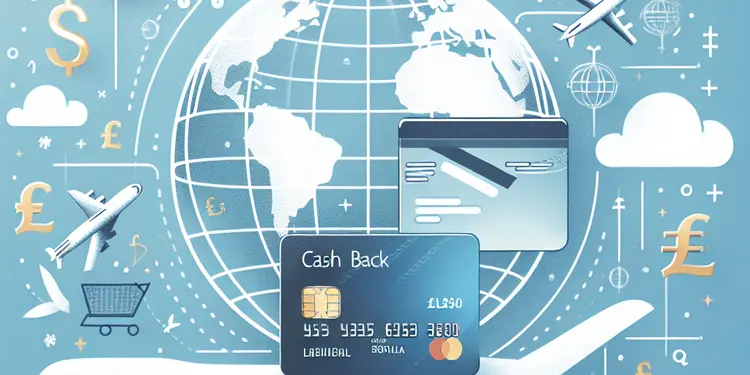
Can I use a cashback credit card abroad?
Relevance: 31%
Can I Transfer a Balance from a Loan to a Credit Card?
In the UK, many people explore options to manage their debt effectively, especially when it comes to transferring balances. One common question is whether it's possible to transfer a balance from a personal loan to a credit card. This can often be a strategic move to reduce interest payments, but several factors must be considered.
Understanding Balance Transfers
A balance transfer typically involves moving debt from one credit card to another, often to take advantage of lower interest rates or introductory 0% APR offers. However, using a credit card to pay off a personal loan isn't as straightforward. Most credit card companies don’t allow direct balance transfers from loans. Instead, you might need to use a combination of methods to achieve a similar outcome.
Using a Money Transfer Credit Card
In the UK, a money transfer credit card can be used to transfer funds directly into your bank account, which you can then use to pay off a personal loan. This can be an effective way to consolidate debt if the credit card offers a low-interest rate or an interest-free introductory period. It’s important to consider any fees involved, as such transfers often incur a percentage fee of the amount you transfer.
Advantages of Transferring a Loan to a Credit Card
The main advantage of transferring a loan balance to a credit card is the potential for reduced interest payments. If you’re currently paying high interest on a personal loan, a 0% interest rate on a credit card (if available) can provide temporary relief. It also simplifies debt management by consolidating multiple debts into one payment.
Considerations and Risks
Before transferring a loan balance to a credit card, consider the associated risks. After the introductory period, the interest rate on a credit card can be significantly higher than a loan. Failure to repay the amount within this period can result in increased financial strain. Always check the terms and conditions, including the standard APR after any promotional period ends, and ensure you have a clear repayment plan.
Conclusion
While transferring a balance from a loan to a credit card can offer benefits such as lower interest rates and consolidating debts, it's not without risks. For UK residents, using a money transfer credit card is one avenue to explore, but it requires careful planning and management. Analyze your financial situation, explore all options, and consider speaking to a financial advisor to make informed decisions about debt management.
Can I Move a Loan to a Credit Card?
In the UK, people often look for ways to handle their debt better. One question many have is: Can you move a personal loan to a credit card? This can help save money on interest, but you need to think about some important things first.
What is a Balance Transfer?
A balance transfer is when you move debt from one credit card to another. This is usually done to get a lower interest rate or a special deal with 0% interest for a while. But moving a personal loan to a credit card is not that easy. Most credit cards don’t let you do this directly. You might need to try different ways to make this happen.
Using a Money Transfer Credit Card
In the UK, there is something called a money transfer credit card. You can use it to put money into your bank account, and then use that money to pay off a loan. This can be a good way to put debts together if the credit card has low interest or no interest for a while. But watch out for fees, because you might have to pay a small part of the amount you move.
Good Things About Moving a Loan to a Credit Card
The best part of moving a loan to a credit card is paying less interest. If you are paying a lot of interest on a loan, getting 0% interest on a credit card (if you can) can help for a short time. It also makes it easier to keep track of debt by having just one payment to make.
Things to Think About and Be Careful Of
Before you move a loan to a credit card, think about the risks. After the special 0% interest time, the credit card's interest rate might be much higher than the loan's. If you don't pay back in time, it could be bad for your money situation. Always read the rules, know what the interest will be after the special time, and have a plan to pay it back.
Conclusion
Moving a loan to a credit card can help with lower interest and easier debt handling. But there are risks. In the UK, using a money transfer credit card is one way to do it, but you need to plan well. Think about your money situation, look at all your options, and maybe talk to a financial expert to make smart choices about handling debt.
Frequently Asked Questions
Can I transfer a balance from a loan to a credit card?
Yes, you can transfer a balance from a loan to a credit card if your credit card issuer allows it and you have sufficient credit limit available.
What types of loans can be transferred to a credit card?
Typically, personal loans, medical loans, and other unsecured loans can be transferred to a credit card, but you should check with your credit card issuer for specifics.
Are there fees involved in transferring a loan balance to a credit card?
Yes, there are usually balance transfer fees, typically around 3-5% of the amount transferred.
How do I transfer a balance from a loan to a credit card?
You would initiate a balance transfer through your credit card issuer, either online, through an app, or by calling customer service.
Do all credit cards allow balance transfers?
Not all credit cards offer the option to transfer balances. You need to check with your credit card issuer to see if balance transfers are available.
What are the advantages of transferring a loan balance to a credit card?
Advantages may include a lower interest rate, consolidating payments, or taking advantage of a promotional 0% APR period.
What are the risks of transferring a loan balance to a credit card?
Risks include potentially higher future interest rates, fees, and the temptation to incur more debt on the credit card.
How long does it take to complete a balance transfer?
Balance transfers can take anywhere from a few days to several weeks to complete, depending on the institutions involved.
Is there a limit to the amount I can transfer to my credit card?
Yes, the amount is usually limited to your credit card's available credit limit and the card issuer's policies.
Can I transfer a loan balance to a credit card from a different bank?
Yes, you can transfer a balance from a loan to a credit card from different institutions, but you should verify if your card issuer allows such transfers.
Will transferring a loan balance to a credit card affect my credit score?
It might, as balance transfers can affect your credit utilization ratio and potentially increase your debt load.
Do I need a good credit score to transfer a balance to a credit card?
Having a good credit score helps in being approved for a balance transfer and obtaining better terms, like lower interest rates.
Can transferring a loan balance to a credit card help with debt consolidation?
Yes, transferring a loan balance to a credit card can be part of a debt consolidation strategy to simplify and reduce your interest payments.
How often can I transfer balances to a credit card?
You can transfer balances as often as your credit card issuer allows, but be cautious of fees and potential credit score impacts.
Do balance transfer offers have expiration dates?
Yes, promotional balance transfer offers typically have expiration dates, so it's important to complete the transfer within that timeframe.
What should I consider before transferring a loan balance to a credit card?
Consider the fees, interest rates, your ability to pay off the balance, and the potential impact on your credit score.
Can I cancel a balance transfer request after I initiate it?
It's often difficult to cancel a balance transfer once it's initiated, so be sure before making the request.
What happens if I miss a payment after transferring a loan to a credit card?
Missing a payment can result in penalties and loss of promotional interest rates, if applicable.
Is transferring a loan balance to a credit card a common practice?
While not as common as transferring credit card debts, some people do transfer loan balances to credit cards to take advantage of lower interest rates.
Can I transfer the balance of a student loan to a credit card?
Transferring a student loan balance to a credit card is generally not recommended due to high interest rates and loss of federal loan protections.
Can I move money from a loan to a credit card?
Yes, you might be able to do this.
Check with your bank or credit card company.
They will tell you if you can move the money.
If you can move the money, they will help you do it.
Ask someone you trust to help you understand this.
Use simple tools like a calculator to help with numbers.
Yes, you can move money you owe from a loan to a credit card. But, your credit card company must say it's okay and you need to have enough room to do it on your card.
What loans can you move to a credit card?
You can move some loans to a credit card. These loans can be:
- Personal loans: Money borrowed for things you need.
- Car loans: Money borrowed to buy a car.
- Store loans: Money borrowed to buy things from a shop.
It's important to check with your credit card company. They can tell you which loans you can move.
If you need help, you can:
- Ask a friend or family member to explain.
- Use online tools to read out loud.
- Talk to a bank or money helper for advice.
Always make sure you understand before moving money around.
You can often move other types of loans, like personal loans or medical loans, to a credit card. These are called unsecured loans. But it's important to ask your credit card company if you can do this.
Do you have to pay money to move a loan to a credit card?
Yes, there are usually fees when you move money from one card to another. These fees are often 3-5% of the money you move.
How can I move money I owe from a loan to a credit card?
You owe money to someone. This is called a loan.
You can move this loan to a credit card. A credit card is a special card for money.
Here is how you can do it:
- Check your credit card. Does it allow you to move money? Ask your credit card company if you are unsure.
- Contact your credit card company. Tell them you want to move your loan to your credit card.
- They might ask for details, like how much money you owe.
- Follow their instructions.
Some tools to help you:
- Ask a trusted adult to help you.
- Use a calculator to manage numbers easily.
You can start moving your balance to another credit card by talking to your credit card company. You can do this on their website, using their app, or by calling their customer service number.
Can you move money from one credit card to another on all credit cards?
Some credit cards do not let you move money you owe to another card. Check with your credit card company to see if you can move your balance.
What are the good things about moving a loan to a credit card?
Here are some helpful tips and tools:
- Help with money: Moving a loan to a credit card can save you money.
- Lower payments: You might pay less each month with a credit card.
- Easy to handle: Having just one payment to think about can make it simpler.
- Use a calculator: Try using an online calculator to see the new costs.
There are some good things. You might have to pay less interest. You can put all your payments together. You might get a time with no extra costs for borrowing money.
What are the dangers of moving loan money to a credit card?
Sometimes, people take loan money they owe and put it on a credit card. This can have some dangers:
- Extra Costs: You might have to pay fees. This means you spend more money.
- Higher Interest: The credit card might make you pay more money over time.
- More Debt: Putting money on the card might make it harder to pay everything back.
For help, ask an adult you trust or use online tools to understand better.
Things to watch out for:
1. Interest rates might go up. That means you could pay more money later.
2. There could be extra fees. These are extra costs you have to pay.
3. You might want to spend more money on your credit card. It can be easy to spend a lot.
Helpful tips:
- Use a calculator to see how much you'll pay with different interest rates.
- Keep track of any extra costs or fees.
- Set a budget to see how much you can spend safely.
How long does a balance transfer take?
A balance transfer can take a few days or up to two weeks.
Check with your bank or credit card company to see how long it will take for you.
If you need help, ask someone you trust or use a calculator tool online.
Moving money from one card to another can take a few days or a few weeks. It depends on which banks or companies you use.
Can I move money to my credit card without limits?
Yes, the amount you can spend is usually limited. You can only spend up to the money allowed by your credit card company.
Can I move money I owe from one bank to a bank credit card?
If you have a loan at one bank and want to pay it with a credit card from another bank, you might be able to do this. Check with your bank to see if you can move the money you owe to a credit card.
Here are some tips to help you:
- Ask your bank if they allow balance transfers to credit cards.
- Make sure the credit card has enough money to cover the loan.
- Look for special offers that might make it cheaper, like low fees.
Yes, you can move money you owe from a loan to a credit card from a different bank. But first, check if your credit card company lets you do this.
Will Moving My Loan to a Credit Card Change My Credit Score?
Moving money you owe from a loan to a credit card might change your credit score. Here’s how:
- It can help your score if you make payments on time and use only a small part of your credit.
- It can hurt your score if you use too much credit or miss payments.
If you need help, you can:
- Ask an adult you trust to explain things.
- Use a simple calculator to keep track of how much you owe.
- Set reminders to pay on time.
Moving your balance to another card might change how much credit you are using. It can also make your debt get bigger.
Do I need a good credit score to move money to another credit card?
You might want to move money you owe from one credit card to another. This is called a "balance transfer."
Some cards let you do this only if you have a good credit score. A credit score is a number that shows how good you are at paying back money you borrow. A higher number is better.
If your score is not very good, some card companies might not let you move the money. You can check your credit score before you try. There are websites and apps that can help you see your score for free.
If you need help with this, ask a friend, family member, or someone who knows about money. They can help you understand what to do next.
A good credit score is important. It can help you get a balance transfer. It also means you might have to pay less in interest.
Can moving loan money to a credit card help put all debt in one place?
Sometimes people owe money to different places. They have loans and credit cards. This can be confusing. Moving all the money you owe into one place can be easier.
One way to do this is by using a credit card to pay off a loan. This puts all the money you owe on the credit card. Then, you only have one payment to think about each month. This is called "putting all debt in one place."
Make sure to check if there are any extra fees for moving the loan to a credit card. Some people use a special kind of credit card called a "balance transfer card" that might have lower fees.
You can ask someone you trust for advice. Some people find it helpful to use a calculator to see how much money they might save. You can also talk to a money expert for help.
Yes, you can move a loan to a credit card. This can help make things easier and save money on interest.
How many times can I move money to my credit card?
You can move money from one credit card to another. It depends on the rules of your credit card company. Be careful of extra costs and how it might affect your credit score. Use tools like budget apps or ask for help from a money advisor if you need assistance.
Do balance transfer offers have expiration dates?
Do balance transfer offers run out?
Yes, special offers for moving balances usually end after a certain time. It's important to finish the transfer before the offer ends.
Things to think about before moving a loan to a credit card
Moving money from a loan to a credit card? Here are some tips:
- Check the costs: Find out if there is a fee for moving the money.
- Know the interest rates: See how much extra money you have to pay back.
- Understand the terms: Read the rules for paying back the credit card.
- Ask for help: Talk to a bank worker or someone you trust for advice.
- Use a calculator: Try online tools to see how much you might pay.
Think about the costs, the interest you have to pay, if you can pay back the money, and how it might change your credit score.
Can I stop a balance transfer after I start it?
It can be hard to stop a balance transfer after you start it. So make sure you really want to do it before you ask.
What if I don't pay on time after moving a loan to a credit card?
If you miss a payment, you might have to pay extra money. You could also lose special low-interest deals.
Do people often move loan money to a credit card?
Sometimes people take the money they owe from a loan and put it on a credit card. This can be common. If you find reading this hard, you can use a read-aloud tool or ask someone to explain it to you.
Sometimes, people move their loan money to a credit card. They do this to pay less interest money. This is not as common as moving credit card money, but it does happen.
Can I move my student loan money to a credit card?
It's usually not a good idea to move your student loan onto a credit card. Credit cards can have high interest rates, which means you pay more money back. You also lose helpful rules that come with student loans.
Useful Links
This website offers general information and is not a substitute for professional advice.
Always seek guidance from qualified professionals.
If you have any medical concerns or need urgent help, contact a healthcare professional or emergency services immediately.
Some of this content was generated with AI assistance. We’ve done our best to keep it accurate, helpful, and human-friendly.
- Ergsy carfully checks the information in the videos we provide here.
- Videos shown by Youtube after a video has completed, have NOT been reviewed by ERGSY.
- To view, click the arrow in centre of video.
- Most of the videos you find here will have subtitles and/or closed captions available.
- You may need to turn these on, and choose your preferred language.
- Go to the video you'd like to watch.
- If closed captions (CC) are available, settings will be visible on the bottom right of the video player.
- To turn on Captions, click settings .
- To turn off Captions, click settings again.
More Items From Ergsy search
-

Can I transfer a balance from a loan to a credit card?
Relevance: 100%
-

What is a Balance Transfer Credit Card?
Relevance: 87%
-

Can I transfer balances from any credit card?
Relevance: 84%
-

What are the benefits of a balance transfer credit card?
Relevance: 81%
-

Can I transfer a balance to a card with no promotional offer?
Relevance: 76%
-

What is a good credit score to qualify for a balance transfer card?
Relevance: 74%
-

How do I apply for a balance transfer card?
Relevance: 72%
-

What is a balance transfer credit limit?
Relevance: 72%
-

Will transferring a balance affect my credit score?
Relevance: 71%
-

Can I use a balance transfer card for new purchases?
Relevance: 66%
-

Is a balance transfer the right choice for me?
Relevance: 64%
-

How does a balance transfer work?
Relevance: 63%
-

Can I transfer cashback rewards to another credit card?
Relevance: 62%
-

Are there any fees associated with balance transfers?
Relevance: 62%
-

Do balance transfer offers apply to new purchases?
Relevance: 58%
-

What is the typical duration of a promotional balance transfer offer?
Relevance: 56%
-

How long does a balance transfer take?
Relevance: 56%
-

Credit Cards for Beginners Explained UK | Do's and Don't | Type of Cards
Relevance: 56%
-

Credit Cards for Beginners Explained UK | Do's and Don't | Type of Cards
Relevance: 56%
-

Is a cashback credit card right for me?
Relevance: 51%
-

What is a cashback credit card?
Relevance: 49%
-

Will a cashback credit card help improve my credit score?
Relevance: 47%
-

How does a cashback credit card work?
Relevance: 47%
-

What should I look for in a cashback credit card?
Relevance: 45%
-

What is credit card fraud?
Relevance: 45%
-

Are there any drawbacks to using a cashback credit card?
Relevance: 45%
-

What should I consider before doing a balance transfer?
Relevance: 39%
-

Is it necessary to have holiday insurance if I have a credit card with travel benefits?
Relevance: 37%
-

How does missing student loan payments affect my credit score?
Relevance: 37%
-

How does loan consolidation help with repayment?
Relevance: 34%
-

What happens when the introductory APR period ends?
Relevance: 34%
-

What is loan rehabilitation?
Relevance: 34%
-

Will switching banks affect my credit score?
Relevance: 33%
-

What happens if I default on my student loan?
Relevance: 33%
-

Can I get a loan to cover funeral costs?
Relevance: 33%
-

Can I negotiate a settlement for my student loan?
Relevance: 32%
-

Will switching banks affect my credit score?
Relevance: 31%
-

Can switching banks offer better loan options?
Relevance: 31%
-

Do cashback credit cards offer sign-up bonuses?
Relevance: 31%
-

Can I use a cashback credit card abroad?
Relevance: 31%


